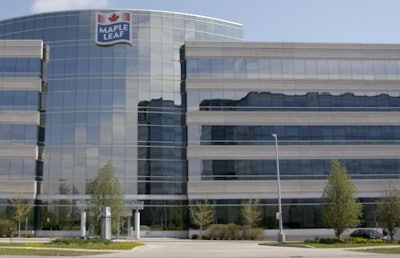
Canada–based food company Maple Leaf Foods held its 2021 fourth quarter earnings call on February 24 with Chief Executive Officer Michael McCain, Chief Operating Officer Curtis Frank and Chief Financial Officer Geert Verellen.
Maple Leaf is the largest food processor in Canada and has the goal of becoming “the most sustainable protein company on Earth,” according to its website.
Challenges
The executives first addressed the various unique challenges that the last few years have brought including:
- COVID-19, specifically the highly contagious Omicron variant, which resulted in about 30% of employees unable to come in to work at any given time
- Extreme weather, like dangerous flooding in British Columbia
- A lack of drivers which resulted in raw materials not arriving
- Rampant inflation and volatile markets
However, as the company moves into the first quarter of 2022, absenteeism levels are already declining and the supply chains are stabilizing, according to McCain, and they expect that the current market instability will be resolved by the second quarter of 2022.
Growth
The company has seen an overall growth of 8%, especially due to the creation of three new facilities in Winnipeg, Indianapolis and London.
According to the financial statement, the “total company sales grew to CA$1.12 billion (US$874 million), with an adjusted earnings before interest, taxes, depreciation and amortization (EBITDA) – margin of 6.8%. Meat protein group sales grew to CA$1.09 billion, an increase of 8.2% on an equivalent 52-week basis. Adjusted EBITDA was CA$120.7 million, and adjusted EBITDA margin was 11.1%.”
Sustainability
Part of Maple Leaf’s sustainability goal is to produce meat alternatives like plant protein. The “plant protein group sales were CA$45.5 million, a decline of 3.7% on an equivalent 52–week basis,” according to executives.
Regarding the company’s raised without antibiotics (RWA) hogs, the company has “convert[ed] 100% of company-owned barns to our industry leading, advanced open style housing system – a milestone for animal welfare,” according to Maple Leaf executives.
The company is hopeful for the future of plant protein as “plant protein customer interest increased by 220%,” according to the company, and customers are “spending 1.2 times more on plant protein than they did three years ago.” Maple Leaf expects the plant protein segment to grow an average of 10-15% per year.

















